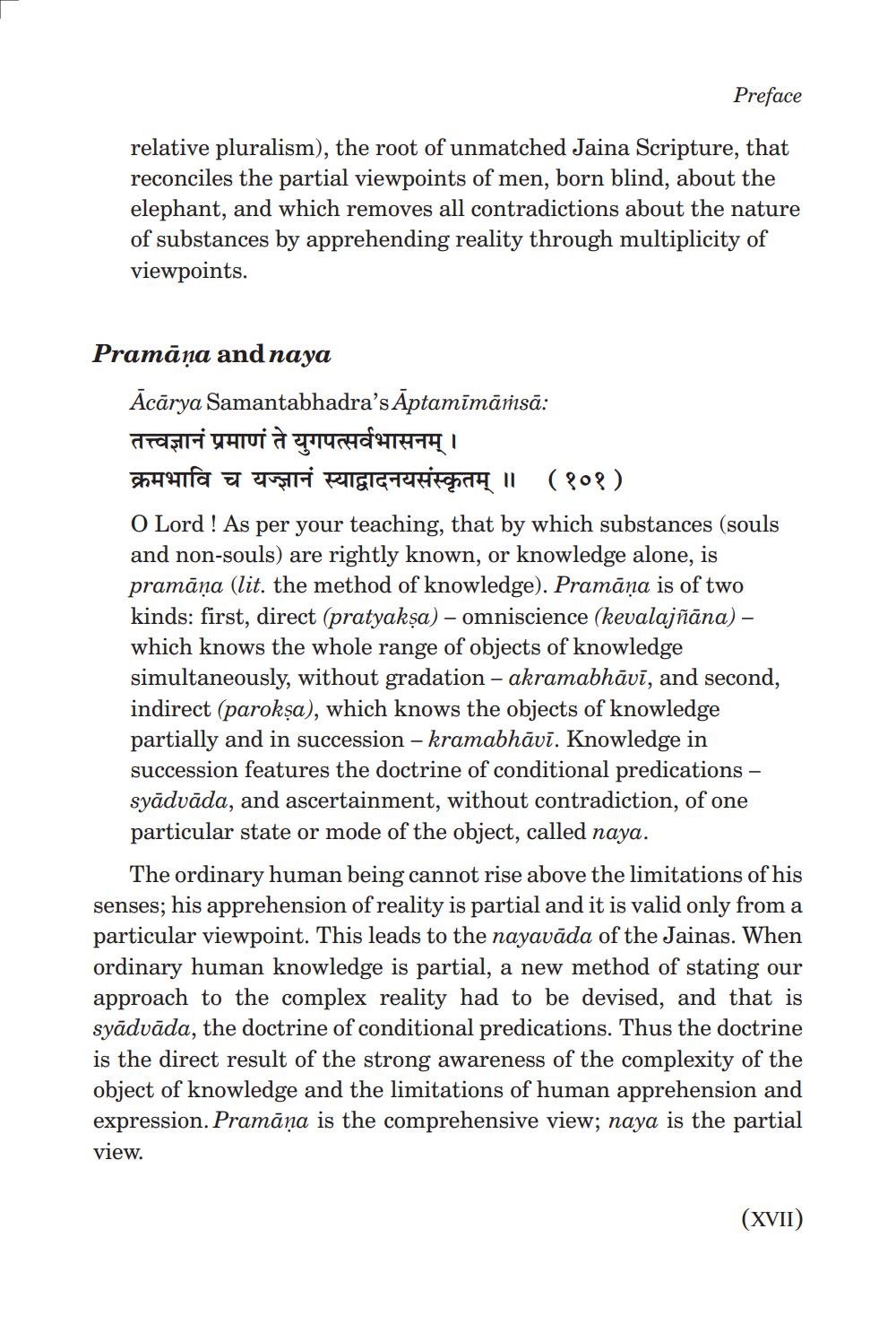________________
Preface
relative pluralism), the root of unmatched Jaina Scripture, that reconciles the partial viewpoints of men, born blind, about the elephant, and which removes all contradictions about the nature of substances by apprehending reality through multiplicity of viewpoints.
Pramāṇa and naya
Ācārya Samantabhadra's Āptamīmāṁsā: तत्त्वज्ञानं प्रमाणं ते युगपत्सर्वभासनम् । 96491fa z UEIR RIIGIGeriona il (808) O Lord ! As per your teaching, that by which substances (souls and non-souls) are rightly known, or knowledge alone, is pramāņa (lit. the method of knowledge). Pramāṇa is of two kinds: first, direct (pratyakşa) - omniscience (kevalajñāna) – which knows the whole range of objects of knowledge simultaneously, without gradation - akramabhāvī, and second, indirect (parokşa), which knows the objects of knowledge partially and in succession - kramabhāvi. Knowledge in succession features the doctrine of conditional predications - syādvāda, and ascertainment, without contradiction, of one particular state or mode of the object, called naya.
The ordinary human being cannot rise above the limitations of his senses; his apprehension of reality is partial and it is valid only from a particular viewpoint. This leads to the nayavāda of the Jainas. When ordinary human knowledge is partial, a new method of stating our approach to the complex reality had to be devised, and that is syāduāda, the doctrine of conditional predications. Thus the doctrine is the direct result of the strong awareness of the complexity of the object of knowledge and the limitations of human apprehension and expression. Pramāṇa is the comprehensive view; naya is the partial view.
(XVII)




